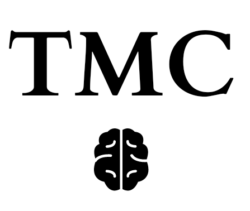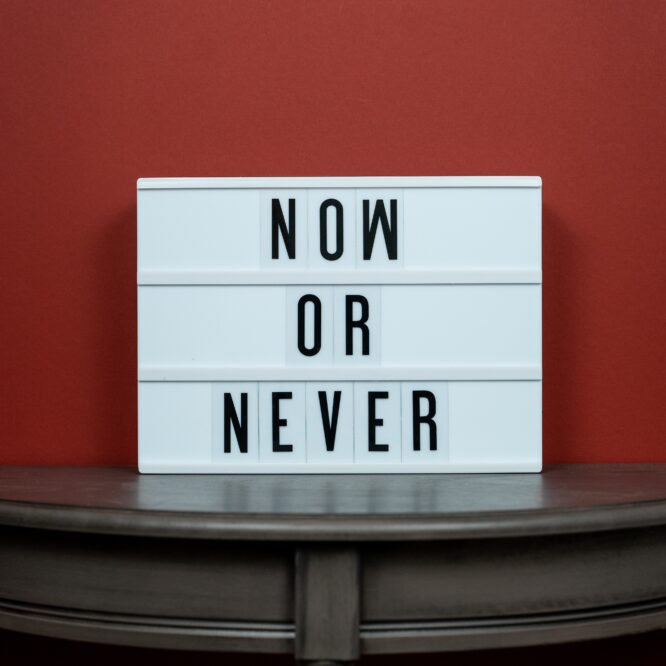Our experience of living has only ever been in this moment and will only ever be in this moment.
It is, of course, useful to draw lessons from your past, and sensible to plan for the future – indeed, that is why memory and consciousness have evolved. But the place to live life to the full is now.It’s so easy to dwell in the past (particularly on regrets and mistakes) or to worry about tomorrow — that’s why living in the present is a vitally important habit to develop. It is so easy for all of us to let our minds drift idly away from the present moment – a certain amount of that is only natural – which is why pulling ourselves back into the present is vital. Otherwise, the experience of life – as it happens – will be constantly lost. It is only in the ‘now’ that life can be influenced.
“Your entire life only happens in this moment. The present moment is life itself. Yet, people live as if the opposite were true and treat the present moment as a stepping stone to the next moment – a means to an end.” Eckart Tolle, ‘The Power of Now.’
Living in the present
Living in the present is an important concept and practice for well-being and is closely entwined with the ideas of self-knowledge, awareness and mindfulness.
Attaining and maintaining mental and spiritual health will always be difficult if your thoughts are stuck in the past or in a state of anxiety about the future. Think of the past and the future as heavy suitcases; why would you voluntarily want to lug these around all your life. Living in the ‘now’ is also central in taming the ‘chattering mind’. We have all experienced the draining process of hearing our own minds ceaselessly talking over past mistakes, actions and poorly chosen words. We have all heard our minds uselessly speculating about ‘what if this or that’ happens in the future.
The chattering mind
A chattering mind will never allow the space and peace to be at one with yourself. At the heart of achieving this serenity is understanding the difference between the ‘ego’ which is your daily, functioning self. The sum total of your identity (name, address, job, relationships, gender, personality labels, memories, plans etc) and the more fundamental, never-changing, ever-present and wordless ‘I’.
The everyday ‘self’ is what allows you to function in life. To get things done and have successful relationships with others. But that is not the core you. Identifying too closely with all the labels and badges of your ego will likely only lead to distress and disappointment.
This is especially true if you are constantly comparing yourself with the achievements (or failures) of others . Costantly wanting things you haven’t got to boost your ego. Endless comparison, feelings of missing out (fomo) and failure are being constantly magnified by the pressures and demands of social media, especially among those in their teens and twenties. Living your life to get ‘likes’ or ‘shares’ is to let real living slip through your fingers.
The false life
Too many people live a false life, ruled by a fake self-image, believing they are someone they are not. The error is to concentrate on ‘what I am’ rather than ‘who I am’. No one is suggesting that you can get through life without some sort of ‘persona’, some sort of constructed self. Indeed, just to hold on to a job, raise a family and interact in this complex world requires that you have a coherent, consistent and organised self.
The danger arises when you are too close to this identity. It’s when you think that you actually are this construct and that it is all that there is. This is particularly true if this concept becomes flimsy or falls apart (divorce, bereavement, job loss, severe illness etc.).
Too great an attachment to ego also reinforces the attitude of ‘separateness’ from others and the universe. All philosophical and spiritual teachings throughout history have emphasised our ‘oneness’ with each other and the ‘ground of being’. Separateness, they would argue, is at the root of all humanity’s problems. Many disorders of the mind stem from this feeling of separateness — that we are alone, detached and alienated.
In autopilot
This is where the value of living in the present lies. Only by being entirely present, by uncluttering your mind of thoughts about the past and future, can you truly appreciate the intense experience of consciousness. This is what mindfulness is. Living in the present — being actively aware moment by moment – is vital in that process. Not being in the ‘now’, living in the fog of a chattering mind, distracted by thoughts of the past and future. All mean that you are drifting through life on autopilot.
On autopilot — always having your thoughts somewhere other than where you actually are, means that you are reacting to life thoughtlessly and habitually. You will keep making the same mistakes over and over again. Flying on autopilot makes a change of direction impossible. Living in the now means living on manual. Being aware that everything that ever happens does so in the moment is vital in forming and maintaining healthy relationships.
Bringing your full attention to the person or people your interacting with is always going to result in more meaningful and rewarding communication. Being constantly on your phone or wishing you were somewhere else isn’t going to produce a good outcome. Just urging someone to ‘live in the present’ probably won’t work because it’s all too easy to let your mind wander to the past or the future. But there are some basic suggestions that help to draw the mind back to now.
A good start
A good start is to sharpen the senses – the sights, sounds, smells, touch sensations, tastes, pains and pleasures; soak them up, bathe in them and appreciate their transience. Every sunrise and sunset is special – aim to see more of them. Being too attached to possessions or having too many of them is likely to distract attention from the moment – particularly items carrying past memories. Harbouring past hurts and resentments is only going to damage the person holding the grudge – forgive, forget and move on. “To forgive is to set a prisoner free and discover that the prisoner was you.” Lewis B. Smedes.
Given that a large proportion of your ‘now’ happens at work – it makes sense to find a job that you love (or at least like!). Wishing away the five working days just to get to the weekend is losing about 70 percent of your waking life. So, change job, or at least look for the positives in your current employment rather than focusing on the negatives.
There’s nothing wrong with having dreams and ambitions – indeed, why not dream big! It’s just that those dreams about the future shouldn’t be at the expense of appreciating the present; it’s the journey not the destination.
Worrying is, without doubt, the most wasteful and damaging of all the mind activities. You really can’t appreciate today if you’re preoccupied by worry about tomorrow. Tomorrow, with all its events and surprises, is going to arrive whether you worry or not. Mental energy is better directed elsewhere – for example just appreciating being alive now.
Being in the grip of any form of addiction means missing out on the moment. When your mind is totally preoccupied with your next ‘fix’, whatever form that might come in, you’re not really ‘here’ and for much of the time, (with alcohol and drugs) literally ‘out-of-it’. For real freedom and awareness, it’s vital to take the first steps towards breaking that compulsive behaviour.
The beginning of freedom – living in the present.
“The beginning of freedom is the realisation that you are not the possessing entity – the thinker. Knowing this enables you to observe the entity. The moment you start watching the thinker, a higher level of consciousness becomes activated. You then begin to realise that there is a vast realm of intelligence beyond thought. That thought is only a tiny aspect of that intelligence. You also realise that all things that truly matter – beauty, love, creativity, joy, inner peace – arise from beyond the mind.”
Are you living in the present?
Eckhart Tolle, Practicing the Power of Now: Essential Teachings, Meditations and Exercises.

